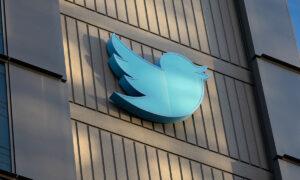The plaintiffs accused X Corp. of indirectly enabling copyright infringement on its social media platform.
A court order will allow some copyright infringement complaints against X Corp. by some of the largest music publishers in the industry to proceed. Judge Aleta Trauger also dismissed some of the original complaints against the company, formerly known as Twitter.
The plaintiffs, representing publishers of thousands of claimed musical compositions, have accused X Corp. of indirectly enabling copyright infringement on its social media platform, where users frequently share copyright-protected work without permission.
The music publishers argue that X, which began as a platform for text-based messages, has evolved into a hub for multimedia content, especially music-infused videos.
Unlike other social media companies that have secured licensing agreements with rights holders, X is accused of circumventing these costs, profiting from content it hasn’t paid to license.
Court’s Analysis and Decision
The court meticulously dissected the arguments presented by both parties, drawing upon precedents and statutory interpretations to navigate the complex issues of copyright law.
The court dismissed the claim of direct infringement by X Corp., concluding that the platform itself did not transmit copyrighted material but merely provided the means for users to do so. This distinction places X more in the role of a carrier, similar to a phone company, rather than a broadcaster or viewer of copyrighted content.
The court also dismissed the vicarious infringement claim, reasoning that X Corp. did not have the level of control over its users that is typically required for such a claim. The decision underscores the legal distinction between providing a service that could be misused for infringement and actively controlling or profiting from such infringement.
However, the court found grounds to continue exploring contributory infringement claims. Specifically, the allegations that X Corp. provided more lenient copyright enforcement to verified users, was slow to act on takedown notices and failed to adequately address repeat infringers which could, if proven, constitute contributory infringement.
What Brought the Suit
The lawsuit was filed last summer in Nashville on behalf of the publishing powerhouses that call “Music City,” aka Nashville, their home.
Plaintiffs sought more than $250 million in damages and injunctive relief for what they called X’s “willful copyright infringement.”
“Twitter fuels its business with countless infringing copies of musical compositions, violating Publishers’ and others’ exclusive rights under copyright law,” the original complaint claimed. “While numerous Twitter competitors recognize the need for proper licenses and agreements for the use of musical compositions on their platforms, Twitter does not, and instead breeds massive copyright infringement that harms music creators.”
The plaintiffs went on to state that the social media platform, which was purchased by billionaire Elon Musk a year prior for $44 billion, is “rife with copyright infringement,” noting that this had also been the case before Mr. Musk’s takeover.
“Twitter has engaged in, knowingly facilitated, and profited from copyright infringement, at the expense of music creators, to whom Twitter pays nothing,” they wrote, adding that there is a “vibrant existing market for social media companies to pay fees for the use of musical compositions.”
Plaintiffs further claimed that a string of other social media companies, including TikTok, Facebook, Instagram, YouTube, and Snapchat have entered into agreements with publishers and other rights holders to compensate creators for their musical work.
They added that they believe that the rampant use of music on the platform had allowed the company to “profit handsomely” from infringement of the “Publishers’ repertoires of musical compositions.”
The lawsuit comes after the International Federation of the Phonographic Industry (IFPI), an organization representing the recording industry’s interests, said in February 2022 that Twitter remains a “significant concern to the music industry.”
The suit added that their notices to Twitter regarding infringing content had “risen” over the last several years, with Twitter/X “choosing to significantly reduce several of its critical departments involved with content review and policing terms of service violations, including both the legal and the trust and safety teams.”
X responded to a request by The Epoch Times for comment on the lawsuit updates with, “Busy now, please check back later.”
Katabella Roberts contributed to this report.
Original News Source Link – Epoch Times
Running For Office? Conservative Campaign Consulting – Election Day Strategies!


